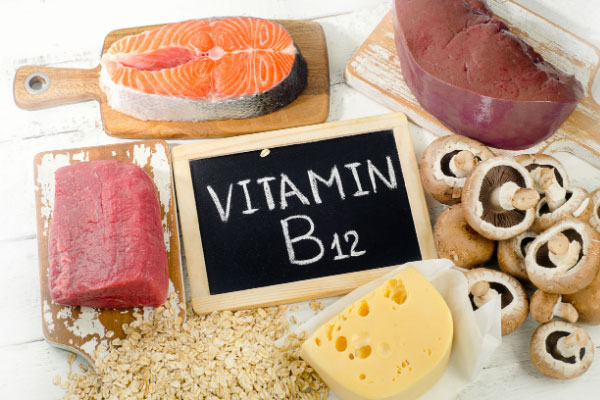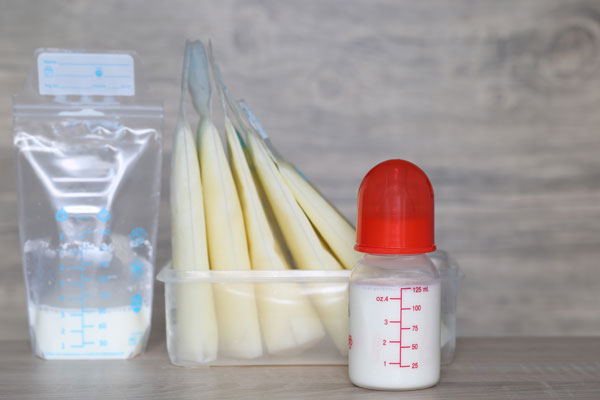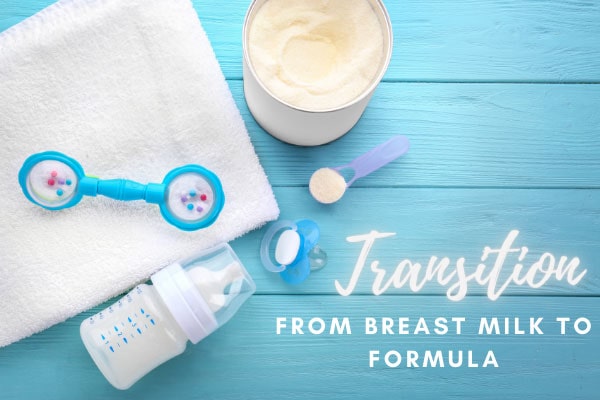Do you have this question that is it safe to take Emergen-C while breastfeeding? The portrayal of the benefits of this supplement is quite tempting. However, if you are a lactating mother, you should be really cautious about the food and supplements you consume.
This article will give you a detailed overview of the Emergen-C, nutrients present in this supplement, and the recommended dietary allowance of each nutrient along with the upper limit. Further, I discussed the significant content of this supplement, Vitamin-C, and Vitamin-B12 in detail. You will find authentic and research-based references for all the facts I quoted in this article.

Breastfeeding mothers always want to eat food that is healthy for the baby. Most of the time, mothers develop this anxiety around insufficiency of nutrients in the breastmilk. This anxiety is followed by a strong urge to take multivitamins and other nutritional supplements.
Emergen-C is one such supplement that is frequently suggested to lactating mothers for a robust immune system. However, every cautious mother does her research before buying any supplement or drug to ensure it is safe to use during this period. If you are at this stage, then this article is for you.
Before going into further details, let’s take a look at Emergen-C, the benefits of taking it, and its contents.
Emergen-C: All you need to know
Emergen-C is a dietary supplement for a boost of the immune system. It has various products, and each product comes in multiple flavors.
Following are the main products of Emergen-C.
- Emergen-C Everyday Immune Support
- Emergen-C Immune plus
- Emergen-C Energy plus
- Emergen-C Botanicals
- Emergen-C Probiotics Plus
- Emergen-C Hydration Plus
- Emergen-Zzzz (to promote sleep and relaxation)
- Emergen-C Kids
These products come in various forms (effervescent powder, gummies, chewable, and shots) and multiple flavors (orange, acai berry, coconut-pineapple, raspberry, lemon-lime, etc.).
However, the most used and our focus product here is Emergen-C Everyday immune support. Its website claims that it contains 1000 mg Vitamin-C that is more than 10 oranges. Moreover, it helps support the immune system and enhance energy.
Emergen-C Contents and their RDA
You can find the detailed list of contents or nutrition present in one packet or single serving of Emergen C everyday immune support, the super orange flavor here.
Below I have mentioned the amount of nutrients in a single serving of Emergen-C, the Recommended Dietary Allowance (RDA) during lactation per day, and the nutrient’s upper intake limit (Drake, 2011).
| Nutrient | Amount per serving of Emergen-C | RDA during lactation per day | Upper intake limit per day |
| Vitamin C | 1000 mg | 120 mg | 2000 mg |
| Thiamin (Vitamin B1) | 0.36 mg | 1.4 mg | ND |
| Riboflavin (Vitamin B2) | 0.39 mg | 1.6 mg | 27 mg |
| Niacin (Vitamin B3) | 4 mg | 35 mg | 35 mg |
| Vitamin B6 | 10 mg | 2.0 mg | 100 mg |
| Folate (Vitamin B9) | 167 mcg | 500 mcg | 1000 mcg |
| Vitamin B12 | 25 mcg | 2.8 mcg | 500 – 1000 mcg |
| Pantothenic acid (Vitamin B5) | 2.5 mg | 7 mg | ND |
| Calcium | 50 mg | 1300 mg | 2500 mg |
| Phosphorous | 38 mg | 700 mg | 4000 mg |
| Magnesium | 53 mg | 310 mg | 350 mg |
| Zinc | 2 mg | 12 mg | 40 mg |
| Manganese | 0.5 mg | 2.6 mg | 11 mg |
| Chromium | 10 mcg | 45 mcg | 1000 mcg |
| Sodium | 65 mg | 1500 mg | ND |
| Potassium | 200 mg | 2800 mg | ND |
*ND = Not determined because of inadequate research and scientific data.
These are the content present in the original formula of Emergen-C. The other products of Emergen-C may vary in the quantity of different nutrients.
You must have observed here that the main content of Emergen-C is Vitamin-C which is 1000 mg in a single serving packet. It is much more than the recommended amount, i.e., 120 mg. But you can take high doses of Vitamin-C, like up to 2000 mg. Research proves that high doses of vitamins are usually not harmful to breastfeeding mothers and babies (Sauberan, 2019).
As you got familiarized with the content of Emergen-C and it is evident that the main content is Vitamin-C. Other nutrients present in this supplement except Vitamin-B12 are below the RDA while Vitamin-B12 is below the upper intake limit. The B-Vitamins are also necessary and beneficial for both mother and baby (Allen, 2012).
Further, I will focus on the main content of this dietary supplement. I will try to answer all your concerns regarding the intake of Emergen-C during lactation.
Why is Vitamin-C important?

Vitamin-C is a water-soluble vitamin that is not synthesized in the human body. Thus we need to rely on external sources for Vitamin-C intake like foods and dietary supplements. Vitamin-C is significant for optimal body functioning. Vitamin-C is involved in the following biological process.
- It is responsible for protein metabolism.
- It plays a significant role in wound healing.
- It acts as a physiological antioxidant.
- It regenerates other antioxidants.
- It improves the iron absorption in the body.
- It plays a vital role in immune functions.
Deficiency of Vitamin-C
Insufficient intake of Vitamin-C can lead to scurvy. The signs of scurvy can appear within 1 month of minimal or absolutely no consumption of Vitamin-C. Scurvy is characterized by:
- Fatigue or lassitude
- Inflammation of gums
- Bleeding gums
- Loosening or loss of teeth
- The weakness of the connective tissues
- Capillary fragility
- Joint pain
- Poor wound healing
- Anemia
- Bone disease
- Depression
- Death
This suggests that Vitamin-C is highly important for normal and healthy body function.
Importance of Vitamin-C during breastfeeding
Here are the answers to few highly asked questions concerning Vitamin-C and its consumption during lactation.
Is it safe to consume Emergen-C while breastfeeding?
The vitamin-C supplement should be taken as per the advice of the doctor or physician. If you feel the need to take Vitamin-C in supplement form, discuss with your doctor. Your doctor will clearly describe the need to take Vitamin-C, other natural ways to increase Vitamin-C intake, and the best Vitamin-C supplement for you.
Is Vitamin-C also important for babies?
Babies are solely dependent on their mother for nutrients during the first four to six months of life. They receive all the essential nutrients from breastmilk, including Vitamin-C. Vitamin-C is also necessary for babies and plays a significant role in skeletal development. Lack of Vitamin-C in babies leads to impaired bone growth and bone diseases.
Vitamin-C heals wound, promotes healthy skin, prevents infections, helps iron absorption, and fights against various diseases, including cancer and cardiovascular diseases.
Vitamin C also reduces the risk of atopy or the vulnerability to develop allergies in babies in lactating mothers with a Vitamin-C-rich diet (Hoppu et al., 2004). This suggests that babies who are fed breastmilk with low Vitamin-C levels are more likely to develop allergies like asthma or eczema later in life.
Does the Vitamin-C consume by the mother affect the Vitamin-C in the breastmilk?
The amount of Vitamin-C in breastmilk depends on the Vitamin-C intake of mothers via food or supplementation. According to Lawrence and Lawrence (2015), the amount of Vitamin-C in breastmilk increases after the mother’s Vitamin-C intake.
A research study proves that If the lactating mother includes an adequate amount of Vitamin-C in the daily diet, then the Vitamin-C supplements will not drastically affect its amount in breastmilk. However, if the lactating mother is deficient in Vitamin-C, the Vitamin-C content in the breastmilk will increase after the supplementation. It also increases the milk supply in some cases (Daneel-Otterbech et al., 2005).
Is the excessive amount of Vitamin-C harmful?
You need to eat a lot of Vitamin-C-rich food to exceed the upper intake limit. Also, the occasional over-consumption of Vitamin-C is not problematic because it is a water-soluble vitamin. And the amount not absorbed by the body is excreted via urine.
Too much dietary intake of Vitamin-C is not deemed as harmful. However, the megadoses of Vitamin-C supplementation can lead to:
- Diarrhea
- Queasiness
- Puking/ acid reflux
- Indigestion
- Stomach pain
- Headache
- Sleeplessness
- Kidney stones
- In rare cases, iron overload is harmful to the heart, liver, thyroid, pancreas, and central nervous system
These symptoms are observable if you take high doses of Vitamin-C, 3g, or 3000 mg per day in the form of supplements.
When is it not suitable for lactating mothers to take Vitamin-C?
Vitamin-C in too high quantity is not appropriate for the babies and can increase the risk of kidney stones in children. Moreover, the lactating mothers of babies with malfunctioning kidneys should be cautious while taking Vitamin-C supplements and consult doctors.
Does Vitamin-C reduce mastitis?
It is suggested that Vitamin-C helps prevent and cure mastitis in lactating mothers. Mastitis is caused by infection, and Vitamin-C is proven to enhance immune function and fight diseases. However, limited research studies support this benefit of Vitamin-C.
Does freezing affect Vitamin-C in breastmilk?
Various mothers pump and freeze breastmilk for later use, i.e., when the mother is not present or when the baby is in daycare. However, the nutrients of breastmilk stay intact if it is stored properly. However, if stored in the refrigerator for 24 hours, the Vitamin-C reduced by one-third. Vitamin-C content is reduced by two-thirds if it is reserved for more than a month in the freezer. Thus it would be best if you are careful about how much breastmilk you freeze.
Related Article: How much breastmilk should you freeze
Natural food sources of Vitamin-C
Fruits and vegetables are the ideal sources of Vitamin-C. Citrus fruits (oranges, grapefruits), tomatoes, and potatoes are primary Vitamin-C sources in the American diet. Other sources include red and green bell peppers, broccoli, Brussel sprouts, strawberries, and cantaloupe. Vitamin-C is also present in fortified breakfast cereals.
Vitamin-C content in foods is affected by prolonged storage and cooking. Heat destroys the Vitamin-C; however, steaming or baking somewhat preserves the Vitamin-C content. Luckily, Vitamin-C rich foods are usually consumed raw. Five different servings of Vitamin-C-rich fruits and vegetables fulfill the daily need of Vitamin-C.
The US Department of Agriculture (USDA) provided a comprehensive list of the foods containing Vitamin-C. You can find that list here.
Along with Vitamin-C, Vitamin-B12 is also present in Emergen-C more than RDA but less than the upper intake limit. Let’s take a look at the essential facts related to Vitamin-B12 and breastfeeding.
Vitamin-B12
Vitamin-B12 is a water-soluble vitamin and, like Vitamin-C, is not synthesized within the body. It is an essential vitamin for body functioning, and the human body relies on outside sources for Vitamin-B12 intake.

Why is Vitamin-B12 important?
Vitamin B-12 is responsible for various body functions, including the formation of red blood cells, metabolism in the cells, multiple nerve functions, and DNA formation. It is also essential for folic acid absorption in the body.
Is Vitamin-B12 significant for lactating mothers and babies?
Vitamin-B12 is essential for lactating mothers as breastmilk is the only source of this nutrient for babies. It passes from mother to baby via breastmilk. From 0 to 6 months, babies need 0.4 mcg of Vitamin-B12, and for babies of 7 to 12 months, 0.5 mcg is RDA for Vitamin-B12.
Do I need to take a Vitamin-B12 supplement?
If you are taking a healthy diet, then you probably don’t need to take vitamin-B12 supplements. However, if you are a vegan and don’t take animal products, you are at risk of Vitamin-B12 deficiency. And if you are a breastfeeding mother, you need even more Vitamin-B12 because your milk will provide this nutrient to your baby. However, you can always take Vitamin B12 fortified foods and supplements.
What are the signs of Vitamin-B12 deficiency?
Deficiency of Vitamin-B12 can lead to
- Anemia
- Fatigue
- Muscle weakness
- Heart palpitations
- Shortness of breath
- Gastrointestinal issues
- Numbness and tingling sensation
- Loss of vision
- Depression
- Memory issues
- Change in behavior
Deficiency of Vitamin-B12 in infancy leads to
- Failure to thrive
- Movement disorders
- Developmental delays
- Megaloblastic anemia
What are the dietary sources of Vitamin-B12?
Vitamin B-12 is not present in plant-based food. The best sources of Vitamin- B12 are meat and dairy products. Following are the significant sources of Vitamin B12.
- Fish
- Shellfish
- Eggs
- Soy products
- Beef liver
- Sardines
- Mackerel
- Lamb
- Wild salmon
- Fortified nutritional yeast
- Feta cheese
- Soy products
- Rice beverages
The US Department of Agriculture (USDA) devised a broad list of foods enriched with Vitamin-B12. You can take a look at that list here.
You can find the Dietary supplement fact on the website of the National Institutes of Health, Office of Dietary supplements, US Department of Health and Human Services.
Is it helpful to take Emergen-C?
It is scientifically proven that the maternal intake of supplementation has an impact on the nutrients in the breastmilk (Zeisel, 2009; Picciano & McGuire, 2009). But the intake of dietary supplements should be done after consulting a doctor.
If you feel that your diet is not fulfilling your baby’s nutritional needs and lacks Vitamin-C and Vitamin-B12, you should consult your doctor. He will do some medical tests to assess the nutritional deficiency. He will be better able to tell you the specific dietary supplements you need to fulfill your baby’s dietary needs.
Endnote
If you are a breastfeeding mother and wonder whether you should take Emergen-C as a dietary supplement, you should consult your doctor. While breastfeeding, the diet and supplements you take have a significant impact on your baby as well.
It will be best to be very cautious about the food you consume and drugs or supplements you take. The nutrients in the Emergen-C, although helpful individually, however, your doctor will determine if you need this combination or not.
Disclaimer: I wrote this article to keep moms updated about the possible effects of nutrients in Emergen-C. This article is strictly for information and education purposes. It should not be considered as a substitute for medical advice. I highly recommend you consult your doctor or lactation expert before taking any food or dietary supplement. Stay updated, stay healthy.
References
Allen L. H. (2012). B vitamins in breast milk: relative importance of maternal status and intake, and effects on infant status and function. Advances in nutrition (Bethesda, Md.), 3(3), 362–369. https://doi.org/10.3945/an.111.001172
Dietary supplement fact sheets, National Institutes of Health, Office of Dietary supplements, US Department of Health and Human Services. https://ods.od.nih.gov/factsheets/list-all/
Drake, V. J. (2011). Micronutrient needs during pregnancy and lactation. Linus Pauling Institute, Oregon State University. https://lpi.oregonstate.edu/mic/life-stages/pregnancy-lactation (“This link leads to a website provided by the Linus Pauling Institute at Oregon State University. Updatedmoms is not affiliated or endorsed by the Linus Pauling Institute or Oregon State University.”)
Hoppu, U., Rinne, M., Salo-Väänänen, P., Lampi, A. M., Piironen, V., & Isolauri, E. (2005). Vitamin C in breast milk may reduce the risk of atopy in the infant. European journal of clinical nutrition, 59(1), 123-128. https://doi.org/10.1038/sj.ejcn.1602048
Picciano, M. F., & McGuire, M. K. (2009). Use of dietary supplements by pregnant and lactating women in North America. The American journal of clinical nutrition, 89(2), 663S–7S. https://doi.org/10.3945/ajcn.2008.26811B
Sauberan, J. B. (2019). High-Dose Vitamins. Breastfeeding medicine, 14(5), 287-289. https://doi.org/10.1089/bfm.2019.0077
Zeisel S. H. (2009). Is maternal diet supplementation beneficial? Optimal development of infant depends on mother’s diet. The American journal of clinical nutrition, 89(2), 685S–7S. https://doi.org/10.3945/ajcn.2008.26811F




